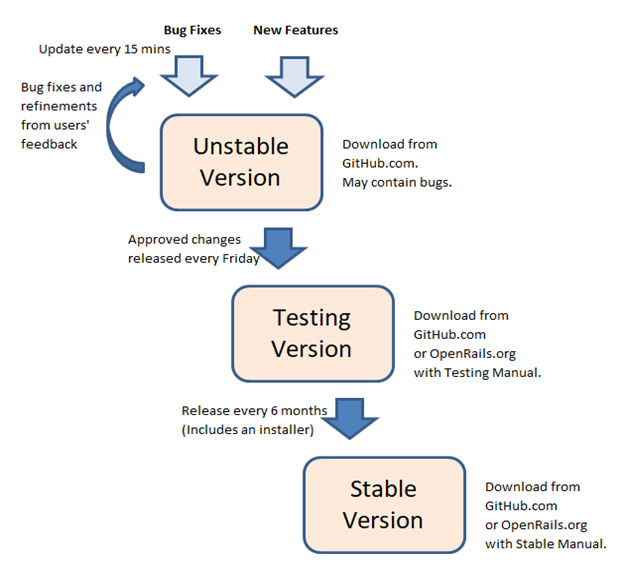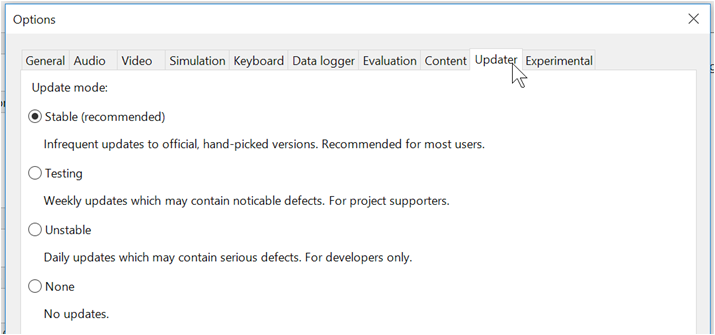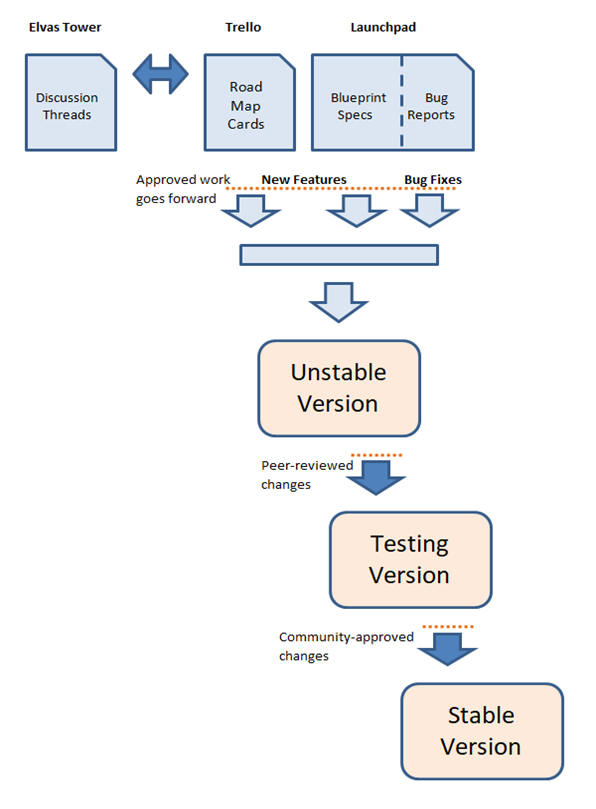Download > Versions
Three Versions of Open Rails
Three versions of Open Rails are readily available to users, as shown below:

For first-time users, we recommend the Stable Version which comes with an installer.
Updater
Whichever version you choose, Open Rails has a mechanism to notify you of new versions and to update Open Rails for you. You will find the settings for this mechanism in Menu > Options > Update

Open Rails will check for updates at most once a day. If an update is found, then you can install the update just by clicking on the link in the top, right corner:

Testing Version
If you follow the Open Rails project on the forums, then you will hear about bug-fixes and new features. These are included in the Unstable Version for developers and testers to try out. Once they have been checked and approved, they are published (on Friday) as the latest Testing Version. Any user can easily update to the current weekly Testing Version and benefit from these improvements.
For reference all the Testing Versions (executable and source) can be found in our archive.
Recent Code Changes
T1.5.1-944-g1ab6b9003Merge pull request #934 from rwf-rr/fix-contentmanager-search-bug-1944070
Fix bug 1944070: ContentManager search exception.6573b5faFix bug 1944070: ContentManager search exception.
T1.5.1-942-g6ac96f9f0Merge pull request #935 from peternewell/diesel-mechanic-bug
Correct bug created in diesel electric locomotive7d048391Correct bug created in diesel electric locomotive
The current Testing Version can also be downloaded as a Zip archive:
26 April 2024, 93MB
The documents included in the Testing Versions downloads can be found on-line at:
- Architecture Diagram V1.pdf
- Contenct checker.pdf
- How to Provide Track Profiles for Open Rails Dynamic Track.pdf
- Installation Guide En.pdf
- Localization Manual.pdf
- Manual.pdf
- ORTS Trackviewer manual.pdf
- Processor Flow Chart.pdf
- timetable-editor_de.pdf
- timetable-editor_en.pdf
Note: Multiple versions of Open Rails will not interfere if they are saved to different folders.
Unstable Version
To support development, the latest unstable version is also available, which is updated whenever a developer publishes a change. The unstable versions are more likely to contain serious bugs and are only recommended for users wishing to help with Open Rails development.
The Manual for the Unstable version is not included in the download, but is available on-line.
For reference all the Unstable Versions (executable and source) can be found in our Unstable archive.
Improvements
Improvements to Open Rails are drawn from several public sources as shown here:

We try to make sure that these changes all work and fit together by reviews as marked in orange in the diagram.



 Built with Bootstrap
Built with Bootstrap  Validated with W3C
Validated with W3C